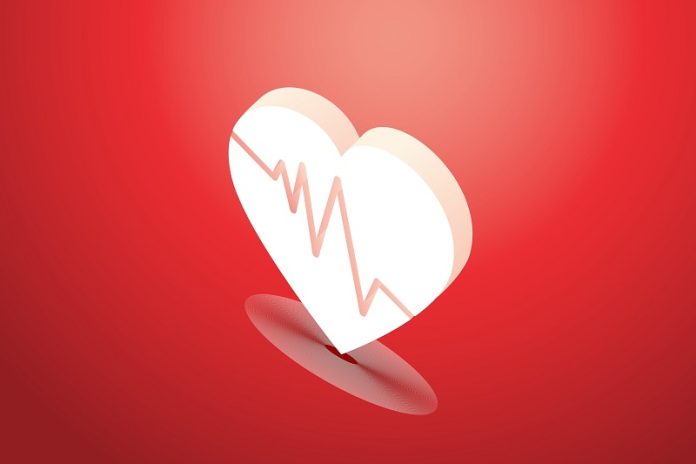
Irregular heartbeats, even those that go unnoticed by traditional heart monitoring, can significantly increase a person’s risk of death, according to a new study by Northwestern Medicine published in the journal Circulation.
This type of irregular heartbeat, known as atrial fibrillation (AFib), is the most common heart rhythm disorder and affects over 2 million people in the United States.
Atrial fibrillation causes the heart to beat rapidly and irregularly. While some people experience noticeable symptoms like palpitations, others may have no idea they have the condition.
According to Dr. Rod Passman, the senior author of the study and the Jules J. Reingold Professor of Electrophysiology, most of what is known about atrial fibrillation comes from cases where the condition was detected during a physical exam or an electrocardiogram (ECG).
However, this study looked at “subclinical” atrial fibrillation—episodes of irregular heartbeats that are only detected by implanted devices like pacemakers or defibrillators.
These episodes are often so brief that the person doesn’t even know they’re happening.
The researchers wanted to understand whether these hidden episodes of AFib have the same impact on mortality as those that are detected in a clinical setting.
The study analyzed data from more than 20,000 people with pacemakers or defibrillators. The researchers compared episodes of atrial fibrillation with death rates over a two-year period.
They found that people with these abnormal heart rhythms were at a higher risk of death, even if the episodes lasted only a few hours and were only detected by the implanted device.
The results showed that individuals with atrial fibrillation had a 29% increased risk of death compared to those without the condition.
For those with persistent atrial fibrillation—where the irregular heartbeats lasted more than a week—the risk of death increased by 39%.
Dr. Passman highlighted the importance of these findings, noting that undetected episodes of irregular heartbeats can still have serious, potentially deadly consequences.
He pointed out that 30% of the study’s participants had at least one episode of atrial fibrillation detected by their device, and about 13% of these individuals died within the two-year follow-up period.
The more frequent and prolonged the episodes of AFib, the greater the risk of death.
The study underscores the need for further research to understand the full impact of subclinical atrial fibrillation on health. Dr. Passman emphasized the importance of early detection and intervention to prevent severe outcomes such as stroke, heart failure, and death.
If you care about heart health, please read studies about how vitamin D influences cholesterol levels, and what we know about egg intake and heart disease.
For more health information, please see recent studies about best supplements for heart disease prevention, and wild blueberries can benefit your heart and brain.



